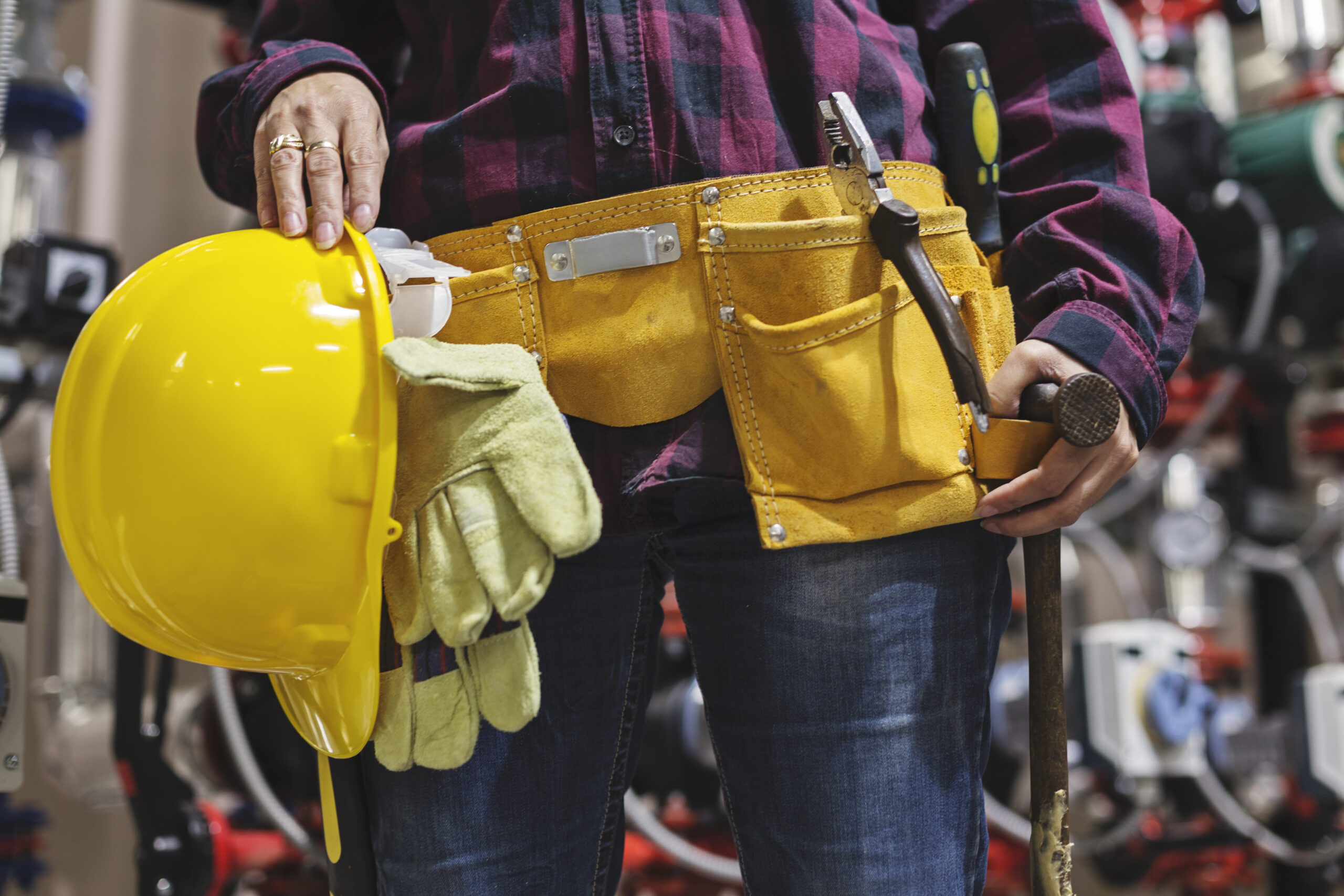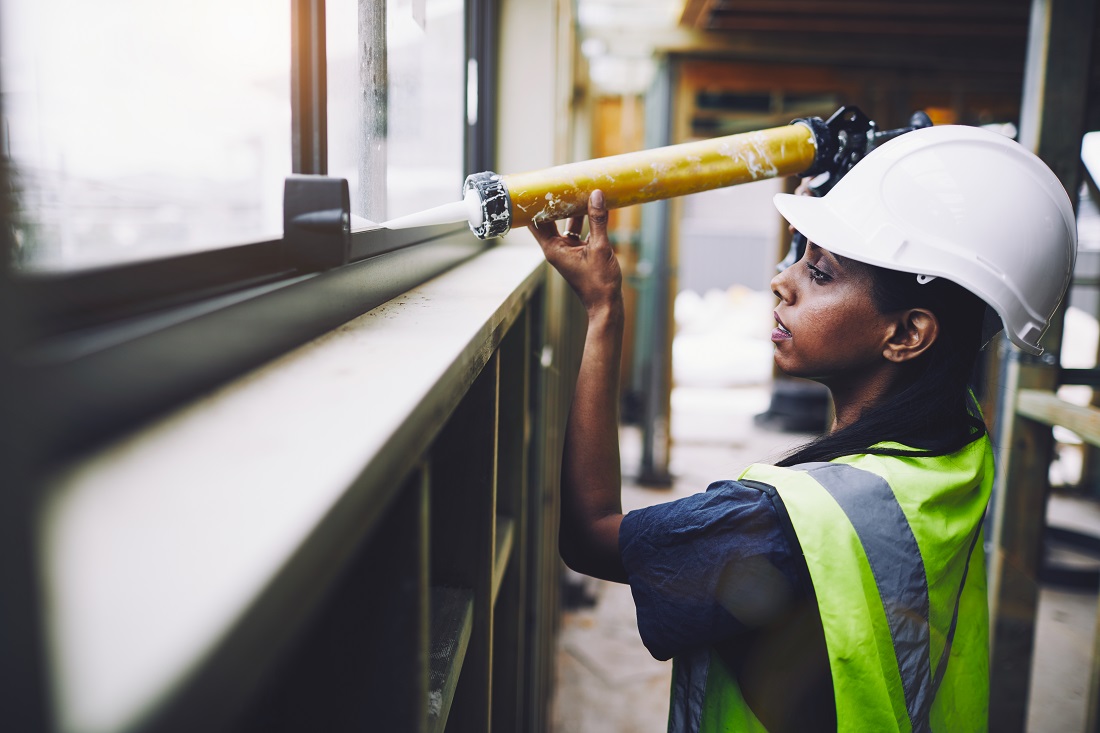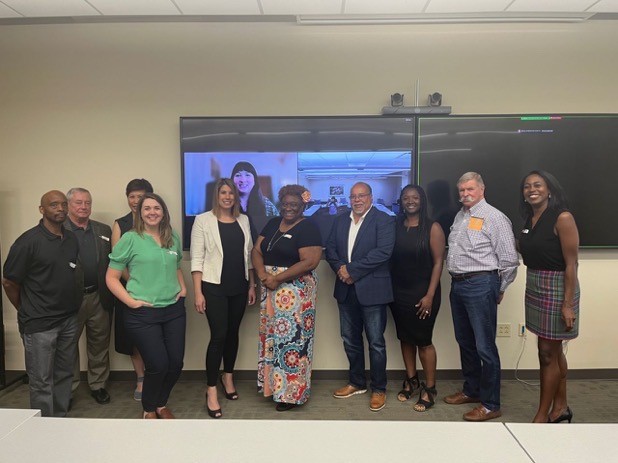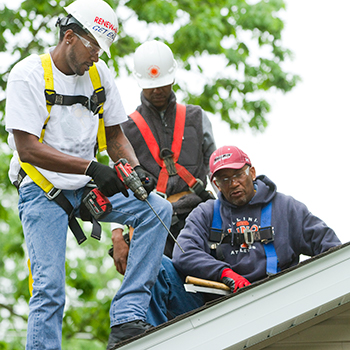An Overview of CEJA’s Job Training Programs
In September 2021, Governor Pritzker signed the Climate and Equitable Jobs Act (CEJA). This historic piece of legislation set up Illinois to be a leader in equitable clean energy jobs creation. Now, a year and a half later, the programs created by the law are ramping up. But what are these programs, and how do they work?

To achieve CEJA’s ambitious job creation goals, an innovative and comprehensive approach was required. Advocates for the legislation recognized that to fully support people seeking to enter the clean energy economy, programing needed to go beyond simply providing a curriculum. Many people face barriers to entry, including financial status, available time, previous education, historic marginalization, and many other factors. Without adequate support, these elements can affect job trainees’ awareness of the programs, capacity to take advantage of them, and success following program completion.
To sufficiently address these challenges, CEJA’s job training programs are designed to work in coordination, creating a network of support at every level for participants. This legislation aims to ensure that trainees are recruited from communities where jobs are needed most, provided with the resources they need to succeed in training and in a new career, and are hired into jobs as soon as they graduate.
CEJA Workforce Programs
Workforce training programs are designed to provide training and connections to a career in clean energy. These programs seek to primarily support applicants living in areas experiencing economic and environmental challenges. Community-based organizations will receive funding to provide these targeted education, outreach, and recruitment services, as well as to connect trainees with the larger statewide and local workforce development systems.
Workforce training hubs will be established in 13 specified communities across Illinois. Two main programs will be offered through the hubs.
- Clean Jobs Workforce Network Program: This program will deliver a curriculum that prepares trainees for jobs in energy efficiency, solar and wind energy, energy storage, and electric vehicle-related industries. The curriculum also includes job readiness skills, certification test preparation, and development of soft skills, math skills, and technical skills for those who would benefit.
- Energy Transition Navigators Program and the Energy Transition Barrier Reduction Program: These programs support all the workforce programs, ensuring that trainees have the resources and guidance they need. Energy Transition Navigators assist with program recruitment and placement, and then job placement upon completion. The Energy Transition Barrier Reduction Program work to establish supportive services for participants to ensure their ability to succeed in the training programs.
 In addition, two other workforce programs will be delivered beyond the 13 workforce training hubs.
In addition, two other workforce programs will be delivered beyond the 13 workforce training hubs.
- Climate Works Pre-Apprenticeship Program: This program will serve as a pipeline to union apprenticeships with the goal of creating “a qualified, diverse pipeline of workers who are prepared for careers in the construction and building trades and clean energy opportunities therein.” This program will be delivered in three regional hubs rather than the 13 local hubs.
- Returning Resident Clean Jobs Program: This program will deliver the clean energy curriculum to people who are incarcerated. By connecting graduates with potential employers, leading to industry-recognized credentials for trainees, and providing job and financial coaching to support employment longevity, trainees are supported throughout their transition. The program will not be delivered through the 13 workforce hubs, but rather at facilities determined by the Illinois Department of Corrections.
CEJA Contractor Programs
Creating a skilled and supported workforce is essential in promoting the clean energy economy. Another key step is in aiding the growth of contractors and small businesses in this industry. In doing so, these organizations will have the capacity to hire graduates of the workforce programs and take on the clean energy projects that will grow their business.
- Clean Energy Contractor Incubator Program: This program will support small clean energy businesses and nonprofits to help them grow to the point that they can sustainably participate in energy efficiency and solar contractor pools and take on more employees. The program will encourage participation by businesses and nonprofits whose owners and leaders reside in environmental justice and historically disinvested communities or face barriers to employment. Like the workforce training hubs, this program will be delivered in 13 locations across Illinois and be administered by community-based organizations.
- Clean Energy Primes Contractor Accelerator Program: This program will help more established contractors grow into leaders in the solar and energy efficiency market and grow from sub-contractor to prime contractor, allowing them to build wealth and organizational capacity as they do so. The program will encourage participation by businesses and nonprofits that show a substantial and demonstrated commitment of investing in and partnering with individuals and organizations in equity investment eligible communities and who exhibit business models that build wealth in the larger underserved community. This program will be delivered across the three regions that cover the state.
Next Steps for CEJA’s Clean Jobs Programs
The clean energy field is expanding rapidly, and this growth provides a unique opportunity to ensure that the space is built to be inclusive from the beginning. CEJA lays the groundwork to prioritize equity from the start, rather than overcome barriers once they’ve already been created.
Notices of Funding Opportunities for these programs are beginning to be released. As they are, community-based organizations will have the opportunity to apply and become grantees to deliver these programs in their communities. To learn more about this funding and the DCEO’s timeline, visit https://dceo.illinois.gov/climateandequitablejobs/ceja-program-announcements.html
Learn More
Want to learn more about Elevate’s workforce and contractor development? Check out the Contractor and Workforce Development programs, and stay up to date with our latest news by subscribing to our newsletter.



